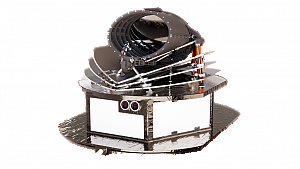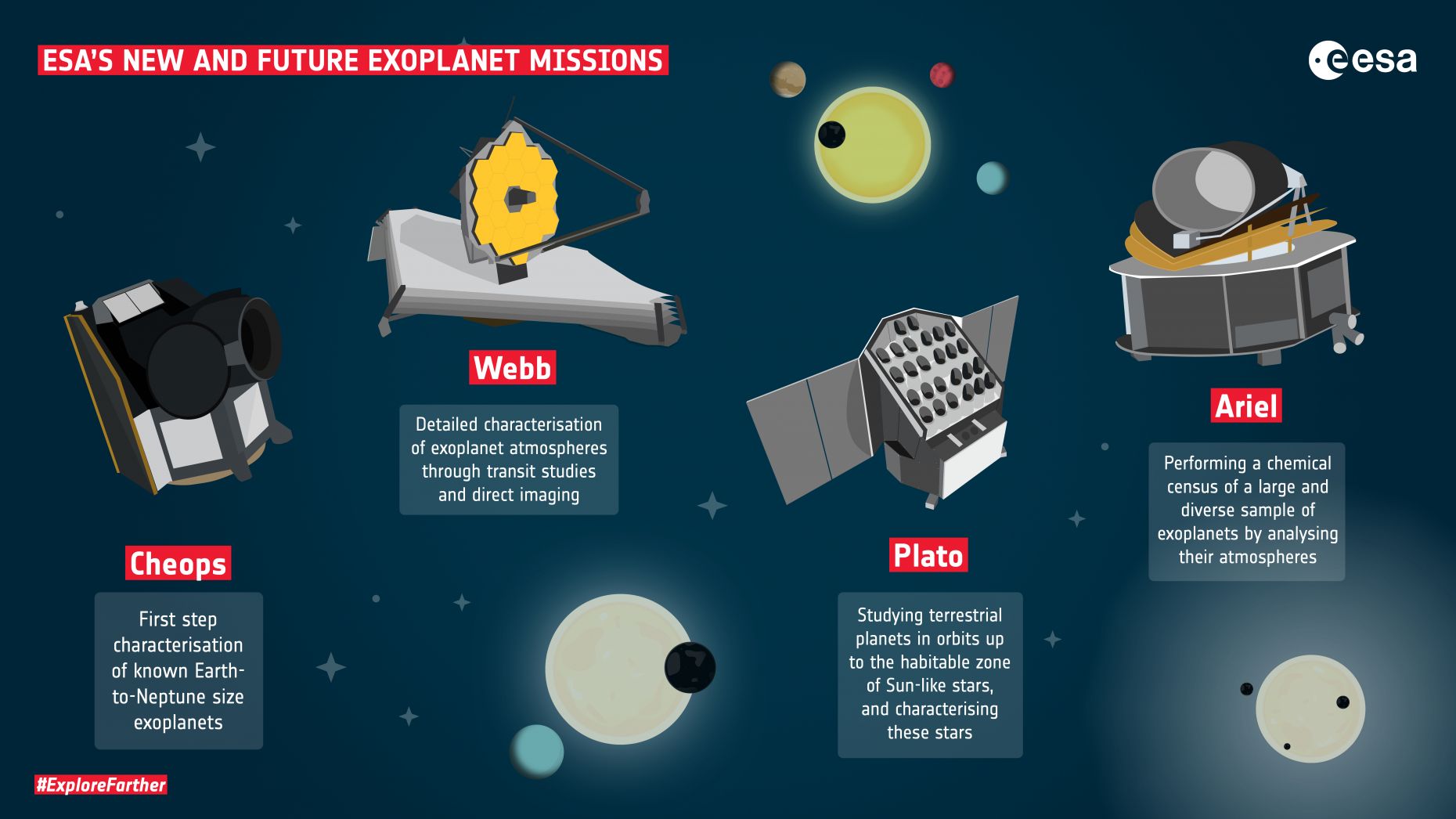Space agency ESA plans mission to explore exoplanets

The "Ariel" mission - a space telescope launched into space - could help find out if there is life or an Earth-like planet elsewhere in the universe, according to a statement from the Paris-based ESA on Tuesday.
Ariel" will make long-term observations of about 1,000 so-called exoplanets over a four-year period starting in 2029. ESA hopes that this will provide insights into the early phase of the formation of planets and atmospheres as well as their further development. Specifically, the chemical composition of passing exoplanets and their thermal structures will be studied. The focus will be on warm and hot planets in particular.
More than 5,000 exoplanets identified
Exoplanets were first observed in 1995. Since then, more than 5,000 of them have been identified. The European Space Agency is already investigating some of them with ESA's Cheops mission. However, little is known about the chemical composition of exoplanets' atmospheres.
ESA commissioned the European aircraft manufacturer Airbus to build the spacecraft for the research mission. The contract is worth around 200 million euros, according to the statement.

